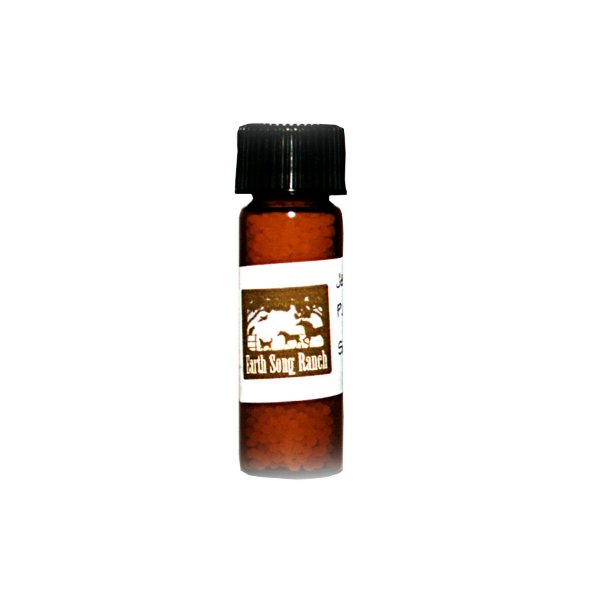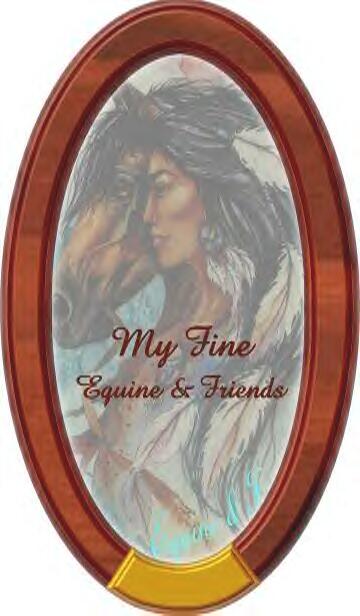
Horse, Dog, Cat, Nosodes
Equine Solutions Catalog Page 22a

NOSODES - by
(The Holistic Vet Clinic)
![]()
Herbal Wormer & Eye Health Support Herbs (Uveitis/Glaucoma)
Equine Equine-Zyme, Dog and Cat Equine-Zyme, Beta Glucan, Joint-Zyme, MSM, Glucosamine,
Mare, Foal, Stallion, Senior Zyme, Yeasture
for non-equine livestock,
Cushings, EPM, Hoof Builder, Tummy-Zymes
Pure Herbs and Herb Blends
Nosodes
![]()
Nosodes are Homeopathic Immunizations that are given in tiny sugar pill form,
monthly, that have no side effects, and are very effective in disease prevention.
all are 30C strength
See article below.

![]()
For Cat and Dogs I highly recommend the ESR K9zyme
and ESR Kittyzyme plus BG/Colostrum for Immune Support
and Daily Digestive and Vits etc.
Also Dog and Cat food dry and wet I highly recommend Life's
Abundance by Dr. Jane Bicks and Healthy Pet Net
CATS
30c Feline combo Nosode - 1 dram up to 10 cats 1 yr., 8oz 2 dram up to 20 cats 1 yr.
30c Feline Combo Nosode - 1 dram $25.00 wt 4 oz, 8oz 2 dram $45
Feline Combo Nosode includes. Feline Leukemia, Panleukopenia, Feline Infectious Peritonitis,
Feline Immuno Dificiency Virus, Chlamydia
12c Feline Leukemia Protocol $45 \\
Most common feline diseases
Cat infectious diseases
Many outdoor cats can contract infections and diseases due to a environmental conditions and contact with other
infected cats. Feline Immunodeficiency Virus (FIV), Feline Leukemia Virus (FeLV or FLeuk) and Feline Infectious
Peritonitis (FIP) are three common viruses that cats can contract. None of these viruses can be transmitted to
humans or any other animals besides cats.
Currently, many of these medical conditions are not well understood and while an infected cat may become ill, many
such cats survive for many years. In a safe, indoor environment, with good nutrition and care, these cats often
have a good chance of leading a long, good quality life.
It is recommended that infected cats be kept as "only" cats, or with other cats carrying the same disease.
This helps prevent spread of the virus (and possible illness) to other cats that are not already infected.
There are different methods of testing for each disease, varying in cost, and in accuracy. In the case of a positive
test, you may wish to talk to your veterinarian about the possibility of retesting - many of these tests may produce
occasional "false positives". In the case of kittens, re-testing is often a good idea, since antibodies
from the mother in young kittens may interfere with the test.
FIV | FeLV | FIP
Feline Immunodeficiency Virus (FIV)
FIV infects all types of cats from the larger cats (e.g leopards, cougars, lions) to domestic house cats. Most
at risk for infection are male non-neutered, outdoor cats that often get in fights with other cats. FIV affects
the feline immune system, which makes the cat more susceptible to disease. The virus is only contagious to other
cats, and is transmitted through saliva and blood (i.e. through biting and fighting). More casual contact such
as sharing litter boxes or feeding bowls and mutual grooming are NOT likely methods of transmission of the virus.
It is even suggested that it is unlikely for an FIV+ mother to transmit FIV to her kittens. As with FIP, a cat
that tests positive for FIV may never develop full-blown FIV and can live a very long and healthy life if kept
indoors, fed properly, and protected against other diseases and injury.
Additional FIV resources:
http://web.vet.cornell.edu/public/fhc/fiv.html
http://www.lbah.com/Feline/FIV.html
http://www.winnfelinehealth.org/health/FIV.html
Feline Leukemia Virus (FeLV)
Feline leukemia virus infection was, until recently, the most common fatal disease of cats. Fewer cases of the
disease are seen, as there are now vaccines available. However, it still remains a major cause of death in cats.
Like FIV, FeLV affects the feline immune system, which makes the cat more susceptible to disease. The virus is
only transmitted between cats, via bodily fluids. (Transmission is primarily through intimate moist contact, such
as biting/fighting or mutual grooming; transmission may be possible via sneezing, hissing, sharing food/water bowls,
and sharing litter boxes.) Veterinary tests are available for FeLV. (Vaccination does not interfere with testing
in the case of FeLV).
Cats who test positive for FeLV may live for months to years, and in many cases, it is possible to keep a FeLV
positive cat and ensure good quality of life through combined efforts of owner and veterinarian.
Vaccines against FeLV are available, although you may wish to consider whether this is necessary for your cat..
"Indoor cats" are considered at low risk for FeLV, although there can always be the risk of infection
if an indoor cat escapes outdoors, or if another unvaccinated cat is brought into the home.
Additional FeLV resources:
http://web.vet.cornell.edu/public/fhc/felv.html
http://www.felineleukemia.org
http://www.winnfelinehealth.org/health/FeLV.html
http://www.lbah.com/Feline/FeLV.html
Feline Infectious Peritonitis (FIP)
FIP is a complex disease that has proven to be difficult to test for, and to treat. The majority of the available
tests for FIP are controversial, as there are concerns about their accuracy and reliability. These tests actually
monitor for feline coronavirus, of which FIP is only one type. Many other types of non-disease causing coronaviruses
can be found in cats. The only definitive test for FIP can be conducted through an invasive tissue biopsy. As in
all the diseases discussed here, FIP can be passed on to other cats, but not to humans or other animals.
While there is a vaccine for FIP, it is not considered totally safe/and or reliable by some vets (if you are considering
adopting a FIP+ cat, talk to your vet about it.) While the disease state of FIP is usually fatal, many cats carry
the virus and live long, healthy lives, especially if they live indoors in a clean environment, have good nutrition,
and are not exposed to stressful conditions. Healthy-looking cats can have very good chances of never developing
full-blown FIP. Nevertheless, it is recommended that FIP+ cats should be in a single-cat home ... or with another
FIP+ cat.
Additional FIP resources:
http://web.vet.cornell.edu/public/fhc/fip.html
http://www.lbah.com/Feline/FIP.html
http://www.winnfelinehealth.org/health/FIP.html
See More Nutritives - Go here...![]()
http://en.wikipedia.org/wiki/Category:Horse_diseases
http://en.wikipedia.org/wiki/List_of_dog_diseases
http://en.wikipedia.org/w/index.php?title=Special%3ASearch&search=feline+diseases&ns0=1
Use the Navigation Bars for quick and easy access.

You can contact us by Snail Mail at: